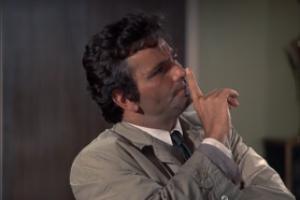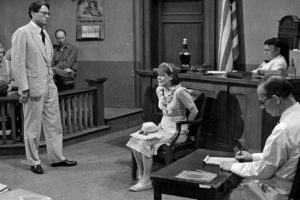When I started practicing law in 1970, my father-in-law, an enormously effective and successful litigator with a leading New England “white shoe” firm, gave me a short lecture on the duty that I would owe to future clients. Since he was the smartest and scariest man I had (and have) ever known, I listened very carefully.
First and foremost, he explained, a lawyer owes his client the unvarnished truth. I was admonished to always tell the client the strengths and weaknesses of the case and spell out the pros and cons of taking any particular course of action. The client may not like hearing bad news or a pessimistic opinion about the merits of the case but must, nevertheless, be fully informed so that he or she can make an intelligent and reasoned decision about the proposed course of action.
This rule, he stressed, must be followed even if it means losing the client.
Throughout my law practice, I tried as best I could to follow my father-in-law’s advice. And, sure enough, on many occasions over the past 50+ years, I lost clients because I wouldn’t tell them what they wanted to hear.
Now when I wrote my latest article about Kyle Rittenhouse (published yesterday by The American Spectator and set forth below), I tried to give a realistic assessment of the risks he would face should he become a plaintiff in a suit for defamation. But, as I hit the send button, I expected that many of the hardcore, meat-eating keyboard warriors among the AmSpec’s devoted readers would reject the article out of hand.
And I turned out to be right. Take, for example, this reader’s comment:
“Thank you, Mr. Parry, for outing yourself, and welcome to the club of George Will, Andrew Napolitano, Karl Rove, Frank Lunz and others who are proudly ignorant and continue to eliminate any doubt by expressing themselves.”
Wow. I ought to be insulted as the reader intended. But frankly being lumped in with George Will and Karl Rove makes me feel more like Wayne and Garth when they met Alice Cooper in this scene from Wayne’s World.
On the other hand, not all the reaction was negative. Consider this reader’s comment:
“Well said. I practiced law for over 30 years. Although I was never in George Parry’s league as a litigator, I saw enough and heard enough in those years to know, for certain, that every word Parry has written above is true. Stay away Kyle: the sharks are out to get you, and even the thinnest trickle of blood will send them into a frenzy. Don’t give it to them.”
Okay, so much for the reviews. Take a look at the article and decide for yourself whether my free advice to young Kyle is worth the fee charged.
Kyle Rittenhouse’s Reputation – The American Spectator | USA News and Politics

Which office do I go to, to get my reputation back?
— Ray Donovan, former Reagan Administration labor secretary, following his acquittal on corruption charges.
Old litigator’s definition of “courthouse” — a place where people go to tell lies.
Ever since Kyle Rittenhouse was acquitted on all charges, there has been a rising chorus calling on him to sue his detractors for defamation. For example, before the prosecution’s meritless and unfounded case disintegrated at trial, Joe Biden condemned Rittenhouse as a white supremacist while media commentators falsely accused him of crossing state lines with an illegally possessed AR-15 rifle to wantonly gun down demonstrators who were engaged in what CNN so laughably called “a fiery but mostly peaceful” protest in the burned and pillaged Kenosha, Wisconsin.
Even now, after the truth has been made abundantly clear at trial, various media commentators continue to spread the thoroughly debunked lie that Rittenhouse was a blood-thirsty vigilante who — weirdly enough — killed and wounded white people in pursuit of a white supremacist agenda.
In short, Rittenhouse has been and continues to be the victim of a campaign of blatantly outrageous lies waged by those who seek to punish and destroy him in the name of social justice.
So, how can he fight back? What can he do to expose the lies and defend his reputation?
Rittenhouse probably helped himself when he was interviewed by Tucker Carlson on Fox News. He was articulate and gave reasoned, thoughtful answers to Carlson’s sympathetic questions. While he will never be able to win over his closed-minded detractors, my sense is that his rational and well-spoken demeanor surprised and impressed many people who had made unwarranted assumptions about his intelligence and reasons for voluntarily responding to the destructive Kenosha rioting.
Since then he has done another televised interview by Ashley Banfield on NewsNation Now and appears to be on track to continue speaking out publicly.
While all of this may enhance his reputation, it is not without risk. Here’s why.
Rittenhouse testified under oath at his trial. It should be assumed that the stumblebum and ethically challenged prosecutors who belly-flopped on the national stage are looking to redeem themselves by taking another crack at Rittenhouse. While these humiliated prosecutors can’t appeal his acquittal, they could use any deviations between his testimony under oath and his interview statements as a pretext for perjury or false-swearing charges.
While it is almost unheard of for prosecutors to charge a defendant for testifying falsely in his own defense at trial, such charges are not legally prohibited. And, of course, there has been nothing routine about the circumstances and passions surrounding the Rittenhouse case. He is a marked man who, as far as the deranged left is concerned, got away with murder. So it is that the same media that falsely smeared him in the first place would happily cheer on any effort by prosecutors to bring new charges in state court just as those same media are demanding that the U.S. Department of Justice investigate and charge him under federal law.
It must be noted that nobody — no matter how honest, candid, or sincere — ever tells the same story the same way twice. There is always some omission, deviation, or change from one telling to another. That is just human nature. But that purely natural human tendency could yield what would appear to be material contradictions to Rittenhouse’s in court testimony. So it is that each answer to each interview question can be likened to the pull of the trigger in a game of Russian roulette. He is playing a game that could have a disastrous outcome.
If Rittenhouse continues to be interviewed under favorable and friendly conditions by persons such as Carlson who mean him no harm, maybe he can avoid getting himself into a jam. But what if he winds up being intensively interrogated under oath about each and every facet, nook, and cranny of his young life by a skilled and hostile cross-examiner armed with a file that contains a detailed and thorough summary of every one of his social, religious, and public associations, activities, beliefs, utterances, emails, letters, school essays, diary entries, social media posts, cell phone and computer contents, school and employment records, and pictures from birth to the present day?
And what if that experienced cross-examiner intensively interrogated Rittenhouse under oath about every allegation, accusation, anecdote, rumor, smear, or fabrication ginned up by the media, federal or state law enforcement, or even by surprise witnesses who appeared out of nowhere to settle old scores or otherwise embarrass or harm him?
Think of the tearful and quaking lawyer Brett Kavanaugh trying to defend himself against allegations of rape before the Senate Judiciary Committee. How well do you think that the callow 18-year-old Kyle Rittenhouse would hold up under such an assault by a seasoned litigator?
I didn’t conjure up this nightmare scenario out of thin air. Over fifty years as a trial lawyer, I’ve seen plaintiffs in defamation cases subjected to just that kind of legally sanctioned destruction by smart lawyers. It’s what can happen when a plaintiff puts his reputation in issue by bringing a defamation case. Once he does that, everything he has ever said, thought, or done becomes fair game because, after all, that is the stuff of reputations.
And, if the discovery in the defamation case and Rittenhouse’s answers under oath in deposition turn up damaging material, it could lead to further criminal charges. Given that Rittenhouse is anathema to the leftists who infest our government and media, I could even see law enforcement and the media working together with defense counsel to defeat his defamation case and to obtain evidence in civil discovery to prove him guilty in a future criminal case.
And, of course, Rittenhouse could also face perjury charges should a prosecutor decide that he testified untruthfully in civil deposition as he was being taken through a hostile review of his entire life.
Rittenhouse has quite properly been found not guilty of criminal charges. But that means only that the prosecution failed to prove his guilt beyond a reasonable doubt. Period. Full stop. The verdict in his favor does not legally or otherwise translate into his full vindication of all wrongdoing by the jury. Nor is it positive proof that he could use in support of a civil claim for defamation. To prevail in such a case, he would have to prove by a preponderance of the evidence each and every element of his defamation claim. And even then, he would have to prove by a preponderance of the evidence the damages to which he would be entitled.
The likelihood of Rittenhouse being able to prove defamation and recover meaningful damages will be the subject of my next article. But for now, let me close this part of the discussion by addressing all of you who are so eagerly urging Rittenhouse to sue the media and Biden.
Your outrage is understandable. I share it. What the vindictive and lying media and Biden have done to this young man is despicable. But we are not the ones whose lives and futures will be at stake if Kyle Rittenhouse goes after his detractors. He is the one who is at risk and who will have to undergo the unrelenting stress, effort, and anguish of pursuing civil litigation against media and political defendants with vast financial and legal resources.
Which is why it is so important that this young man be fully advised of the potential pitfalls, costs, and benefits so that he may make a fully informed decision about whether or not to pick a fight that he might well live to regret.
George Parry is a former federal and state prosecutor and retired civil litigator and criminal defense lawyer. He blogs at knowledgeisgood.net and may be reached by email at kignet1@gmail.com.


13 Comments
Leave your reply.